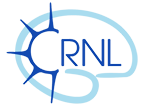Equal opportunities at work
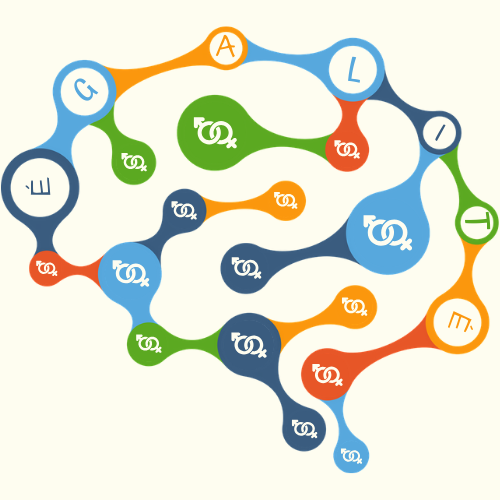
The Equality group at the CRNL was created at the end of 2017 with the initial aim of reflecting on the issue of equal professional opportunities between women and men at the CRNL. Today, the Equality group works to promote professional equality and combat all forms of discrimination. The group is also concerned with the prevention and treatment of psycho-social risks, in particular moral and sexual harassment and sexist and/or sexual violence.
Three members of this group are equality correspondents of the CNRS (Christelle Daudé and Sylvie Mazoyer) and Inserm (Karine Spiegel) regional networks.
Our main actions :
- Creating the Equality booklet (available on the group wiki page)
- Overview of the situation at CRNL (2019)
- Information and awareness on the barriers to equality and the invisibility of women in science
- Information on gender-based violence and harassment and existing resources in case of problems
- Making a questionnaire in 2019 (152 responders, summary available on the group wiki page)
- 1/4 of the women who responded reported having experienced gender discrimination at CRNL
- 1/3 of the women who responded reported having experienced sexism at CRNL
- 1/3 of the responders reported having witnessed at least once moral harassment at CRNL
- Organizing a training day on moral harassment in March 2022 using virtual reality, in partnership with REVERTO. This training will be given to new comers via the health and safety assistants.
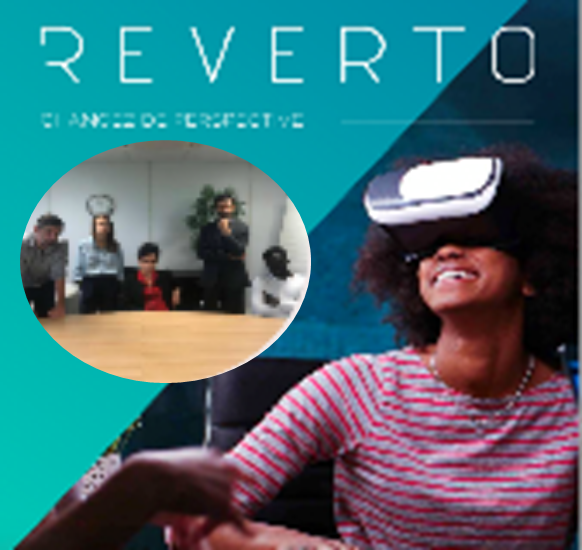
- Organizing an Equal Opportunity Awareness Day in June 2022 (presentation of the Equality group and of the current state of female-male equality at CRNL in 2022, assessment of the “awareness” workshop, summary in pictures of this day available on the group wiki page).
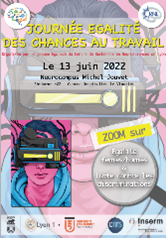
- Publishing equality-related information in the CRNL’s Weekly Newsletter (subscribe).
Click here to access the WikiCRNL page dedicated to the Equality group where you will find all the documents presented.
Prevention of Psychosocial Risks (PSR)
PSR correspond to work situations where stress, internal violence and external violence are present, whether or not in combination. PSR must be taken into account in the same way as other occupational risks. To prevent PSR, a collective prevention approach focused on work and its organization should be favored.
To this end, the CRNL has set up a PSR Reflection and Working Group (RWT), whose aim is to define concrete actions to be implemented at the CRNL:
- To prevent RPS
- To gather the views and provide guidance of people experiencing or witnessing PSR
Click here to access the WikiCRNL page dedicated to PSR prevention.
Scientific integrity
The failures of reproducibility of scientific results widely documented in recent years have triggered and fuel a debate which points out, among various causes, the weakness of the scientific rigor of the researcher. Apart from the cases of proven fraud, which seem to be relatively rare, this lack of rigor stems in particular from methodological errors (for example, the incorrect use of statistical methods) but is also favored by a political context where the pressure to publish is reduced. The time available to the researcher to plan his activity, verify the results and reflect on the scientific implications of his discoveries. Different solutions to resolve this reproducibility problem are starting to emerge (open science, slow science, registered reports, etc.).
In order to keep this debate alive within the CRNL, the Scientific Integrity Working Group has set up a blog where various topics around reproducibility and scientific integrity will be presented. Our hope is to create a space for constructive discussion that could eventually lead to an evolution of our practices.
The "scientific integrity" club brings together around ten people who meet once every month or so and animate this theme in the center (workshop, survey, etc.).
The blog is here: https://project.crnl.fr/IntegriteScientifique
Eco-responsible research

The Science and Climate group is a think tank, formed in November 2019, at the initiative of several staff of the Centre. It brings together a representative of each team at the Centre and collectively proposes actions to be taken to limit the impact of our research activity on the environment (waste sorting/recycling, commuting and travelling to meetings, food, etc.).
Our Centre is a member of the Labos1.5 collective, which aims to evaluate the impact of French research labs on the environment. For this purpose, every year, we will calculate the Centre's greenhouse gas emissions.
Our main actions:
Apply for the ‘cycle-friendly employer’ label.
- Carry out the CRNL's greenhouse gas emissions assessment (BEGES).
- An operation to raise awareness of the need to reduce electricity consumption. The temperature of the centre's 10 ultra-low temperature freezers was adjusted from -80°C to -70°C to reduce electricity consumption equivalent to several households;
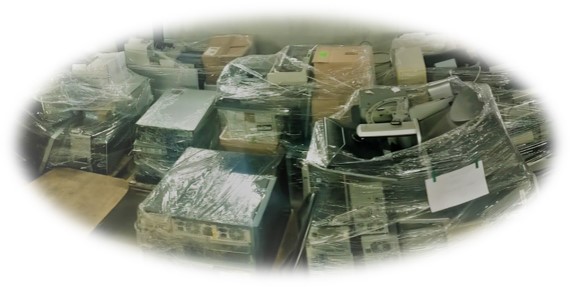
- A recycling operation for electrical and electronic waste. The action made it possible to collect 12 pallets, i.e. 2 tons of equipment, some of which was reused internally;
- The provision of additional paper/cardboard recycling bins in offices and laboratories to encourage staff to recycle this waste,
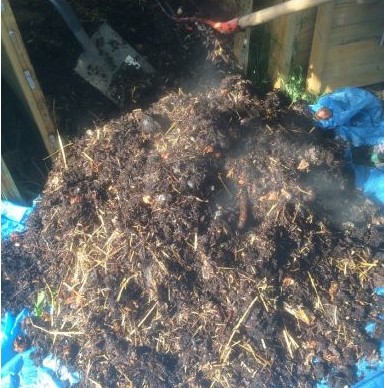
- ClubEco and Club Ciboulette (gardening club) have joined forces to install a composter in the Neurocampus garden, which is accessible and open to all CRNL staff, in order to reduce organic waste and naturally amend the garden soil,
- Encouraging the use of a personal cup in the Neurocampus coffee machines to reduce the use of plastic cups,
- The implementation of the recovery of recyclable plastic among laboratory consumables,
- The publication of an 'econote' in the centre's weekly newsletter, drawing attention to the environmental impact of research activities.
🚴♂️CRNL Earns the Silver 'Bike-Friendly Employer' Label !🏆
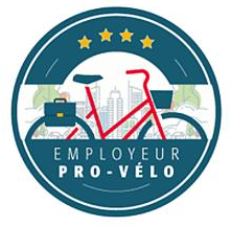 A Collective Adventure Since 2019
A Collective Adventure Since 2019
The story began with the installation of several teams in the main building, Neurocampus Michel Jouvet. As early as 2019, passionate CRNL members who cycled daily launched the Bicyclette Club. Its goal was to create a community where novices could turn to more experienced colleagues for participatory bike repairs. Management quickly supported this initiative by allocating an annual budget to equip and supply the workshop (with bike pumps, inner tubes, etc.) and foster a bike-friendly culture within the center.
Since then, the momentum has grown:
- An active community of cyclists has formed, sharing tips and best practices (the Bicyclette Club).
- Repair workshops and bike safety sessions have been organized for CRNL staff.
- Management appointed a bike coordinator to structure actions and support employees in transitioning to more sustainable mobility.
- A new bike shelter was installed in front of the main building, Neurocampus Michel Jouvet, for visitors.
Why This Label ?
The "Bike-Friendly Employer" label rewards organizations that take concrete steps to:
✅ Facilitate cycling (secure parking, repair workshops, etc.)
✅ Raise awareness and train teams in sustainable mobility
✅ Integrate cycling into a broader CSR (Corporate Social Responsibility) approach.
This Silver Medal, awarded by AFNOR Certification until November 20, 2028, is the result of collective collaboration and a shared commitment to promoting an ecological, economical, and health-beneficial mode of transportation.
What’s Next?
The Science & Climate Working Group at CRNL continues to champion sustainable mobility, with new projects and workshops in the pipeline to make daily cycling even easier.
A huge thank you to everyone who has contributed to this wonderful journey—and to those who pedal every day for a greener future ! 🌱
Click here for the web page of WikiCRNL dedicated to Science and Climate group.
